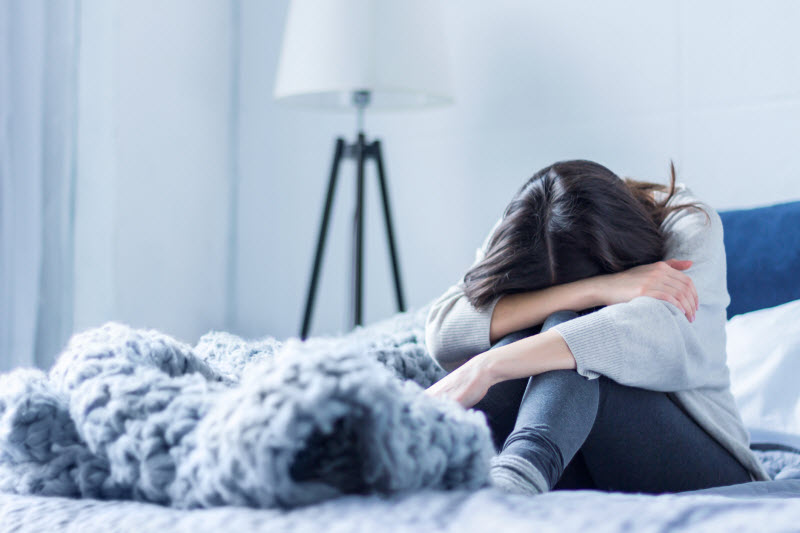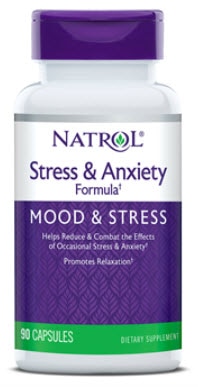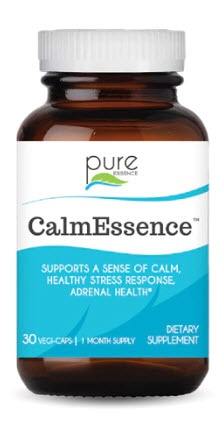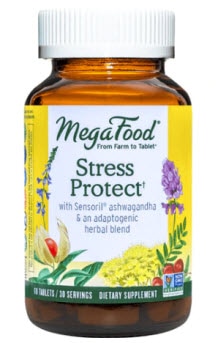A little health anxiety, given that we are still in the midst of a pandemic, seems normal, even warranted. To begin with, there’s the highly transmissible and mortality-inducing virus. This is followed by frequent admonishments to closely monitor yourself for symptoms, sanitize your hands and surfaces, and to quarantine if you think you’ve been exposed. This, coupled with the isolation factor that’s prevalent during what’s often called The Great Resignation, can be a perfect storm for health anxiety. Being cooped up at home as we have been—particularly for people who live alone—can diminish your usual coping strategies and lead to rumination and catastrophic thoughts.
What is anxiety about health?
Health anxiety is the preoccupation with having or developing a serious illness—whether that’s COVID-19, cancer, HIV or something else. Health anxiety is a relatively common condition, known to affect some 4 percent to 5 percent of the general population. An article in Harvard Health Publishing says “experts believe it may be underreported and that the percentage could be closer to 12 percent — or even twice that.” Health anxiety appears to affect men and women equally, whereas other anxiety disorders are more prevalent in women.
Formerly known as hypochondriasis, as in “being a hypochondriac,” that diagnosis was removed from the Diagnostic and Statistical Manual of Mental Disorders (DSM-5) when it was published in 2013, because the name was perceived to be pejorative. According to anxiety.org, “the term is associated with too much stigma and often people suffering from this disorder feel invalidated and dismissed by health professionals and others in our community.”
It was replaced by two terms considered to be more accurate: illness anxiety disorder and somatic symptom disorder. Illness anxiety disorder refers to people who worry about getting a disease where there’s no real physical or medical symptoms. Somatic symptom disorder describes people who are having real medical and/or physical symptoms that cause them undue distress. A preoccupation with one’s symptoms becomes excessive and can often disrupt one’s life. There isn’t always a clear distinction between these two manifestations of health anxiety. It’s possible a person might experience both at different times of their life, or even at the same time.
Health anxiety can also be an expression of obsessive compulsive disorder (OCD), panic disorder or other mental health conditions. You can experience a milder version of health anxiety that doesn’t quite meet the criteria for any of these conditions in their full-blown state. To that point, health anxiety exists on a spectrum. Many people can relate to feeling amplified health concerns at least some of the time.
Why are some people more susceptible to anxiety about health?
While there’s no one clear cause of health anxiety, several factors can create a tipping point to increase a person’s risk. One factor is being extra sensitive or hypervigilant regarding the body. Here’s why: In some ways, heightened body awareness is a curse. Bodies are noisy and subject to weird reactions. They fluctuate in all sorts of ways that can sometimes be noticeable and uncomfortable without necessarily signaling a problem. For example, you can have occasional shortness of breath. You can experience pain in your joints, a strange rash or have a splitting headache. But none of these symptoms is cause for catastrophizing in and of themselves.
Having a family history of health anxiety or a personal history of anxiety can also increase your risk. The tendency to be a worrier makes you extra susceptible. Among those who already have a bona fide medical condition (e.g., Crohn’s disease), chances are higher that you will experience health anxiety.
Other risk factors include paying a lot of attention to scary health news and experiencing a traumatic health-related event, such as the current COVID-19 pandemic. For many patients predisposed to anxiety, the pandemic exacerbated symptoms. The not knowing what’s going to happen, the ever-changing public health mandates, and the general uncertainty and unpredictability makes the world feels much more dangerous. This tumultuous state of affairs triggers more anxiety symptoms.
How can you identify anxiety about health?
One characteristic of health anxiety is engaging with safety behaviors that keep you focused on your worries. Ritualistic safety behaviors can reinforce anxiety. These rituals could be excessively washing your hands, taking your temperature, or checking your body for anything out of the ordinary. Or the compulsive behavior can be psychological: Overanalyzing any physical symptoms, ruminating on all of the “what if” scenarios, or going down rabbit holes of symptom research.
Another common safety behavior is reassurance seeking going to the doctor (or multiple doctors) frequently. Caveat: It can be hard to know if your health concerns are excessive, particularly during a pandemic. While some worry is useful, excessive worry— which only each person can individually measure—is paralyzing.
Symptoms of anxiety about health
- Being preoccupied with having or getting a serious disease or health condition
- Worrying that minor symptoms or body sensations mean you have a serious illness
- Being easily alarmed about your health status
- Finding little or no reassurance from doctor visits or negative test results
- Worrying excessively about a specific medical condition or your risk of developing a medical condition because it runs in your family
- Having so much distress about possible illnesses that it’s hard for you to function
- Repeatedly checking your body for signs of illness or disease
- Frequently making medical appointments for reassurance — or avoiding medical care for fear of being diagnosed with a serious illness
- Avoiding people, places or activities for fear of health risks
- Constantly talking about your health and possible illnesses
- Frequently searching the internet for causes of symptoms or possible illnesses
Why does health anxiety persist despite reassurance from doctors?
Many will purse doctors and tests repeatedly for reassurance but are reluctant to seek mental health treatment since they believe their concerns are medically viable. Although some refuse to be examined by their physician due to their fear of discovering the worst, seeking reassurance from doctors, insisting on repeated medical tests and visits to urgent care, are common in health anxiety. Being reassured by the doctor that there is no serious medical illness brings relief, yet the relief tends to be temporary. The vicious cycle quickly resumes as new intrusive thoughts and alarming physical sensation surface, followed by googling and self-diagnosis, misinterpretations of news in the media, anxiety and more visits to doctors to resolve the uncertainty.
How can you treat anxiety about health?
The most important thing to know about health anxiety is that it’s a treatable problem. For people who are suffering from health anxiety however, it’s not helpful to tell them that their symptoms are all in their head. It’s more constructive to encourage them to look at what the worry is doing to their life and their capacity for enjoyment.
Since it is possible to suffer with anxiety and have a legitimate serious medical condition, rule out any medical problems first with a thorough physical exam. If it is a psychological issue, health anxiety, like most anxiety disorders, is commonly treated with cognitive behavioral therapy (CBT). CBT aims to help patients change their harmful thought patterns, and thus overcome the behaviors that result from those thought patterns.




